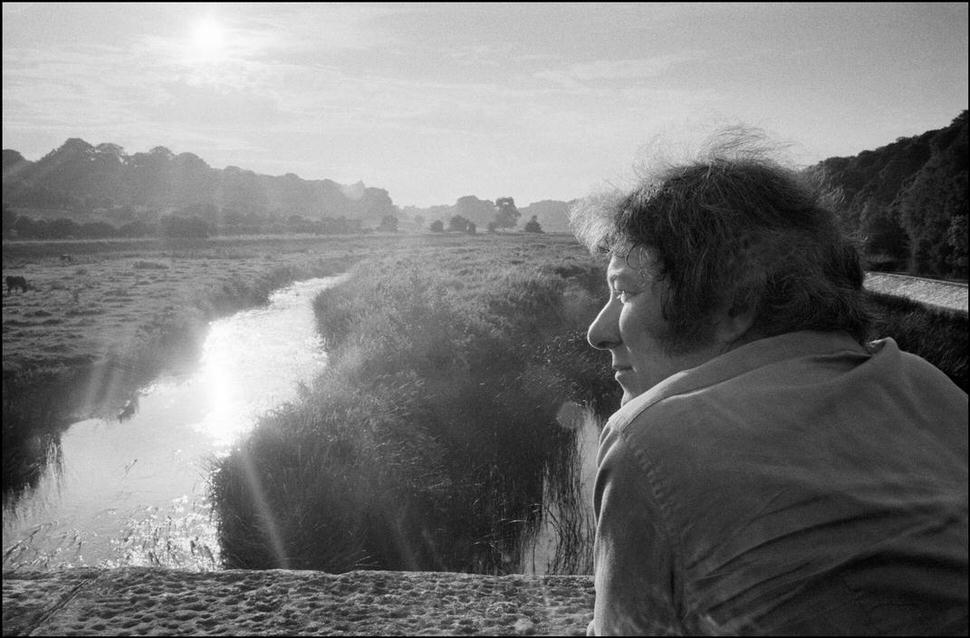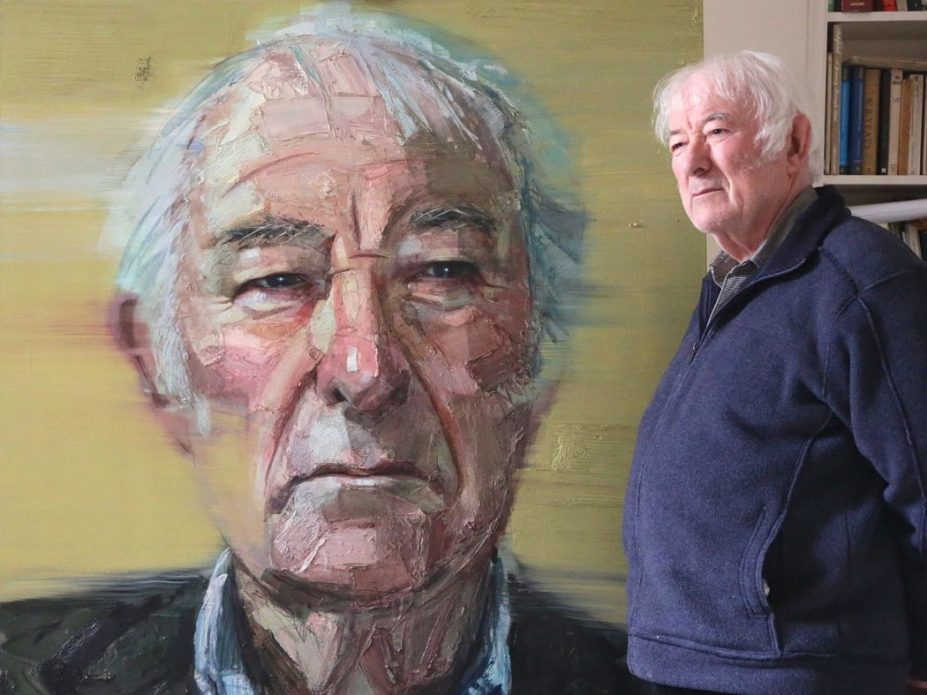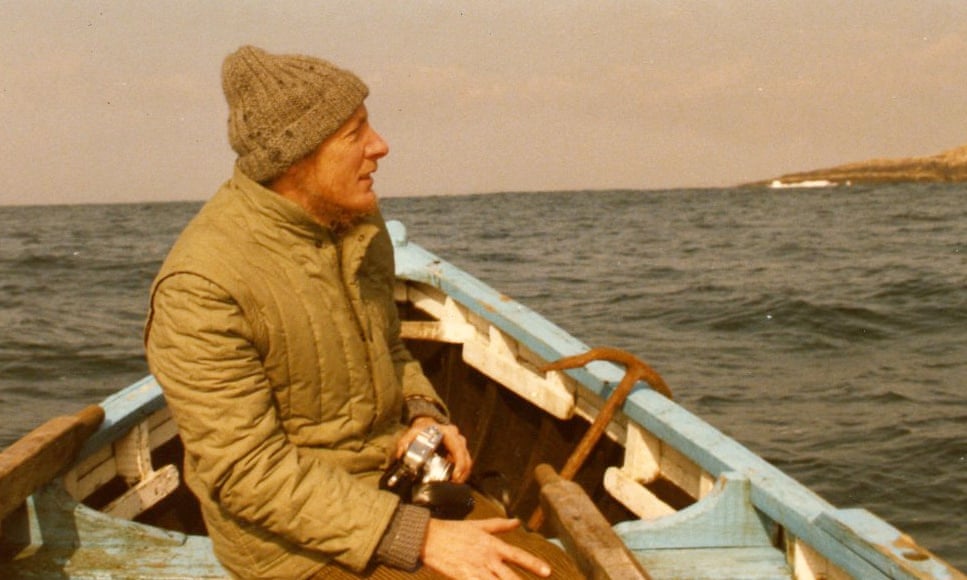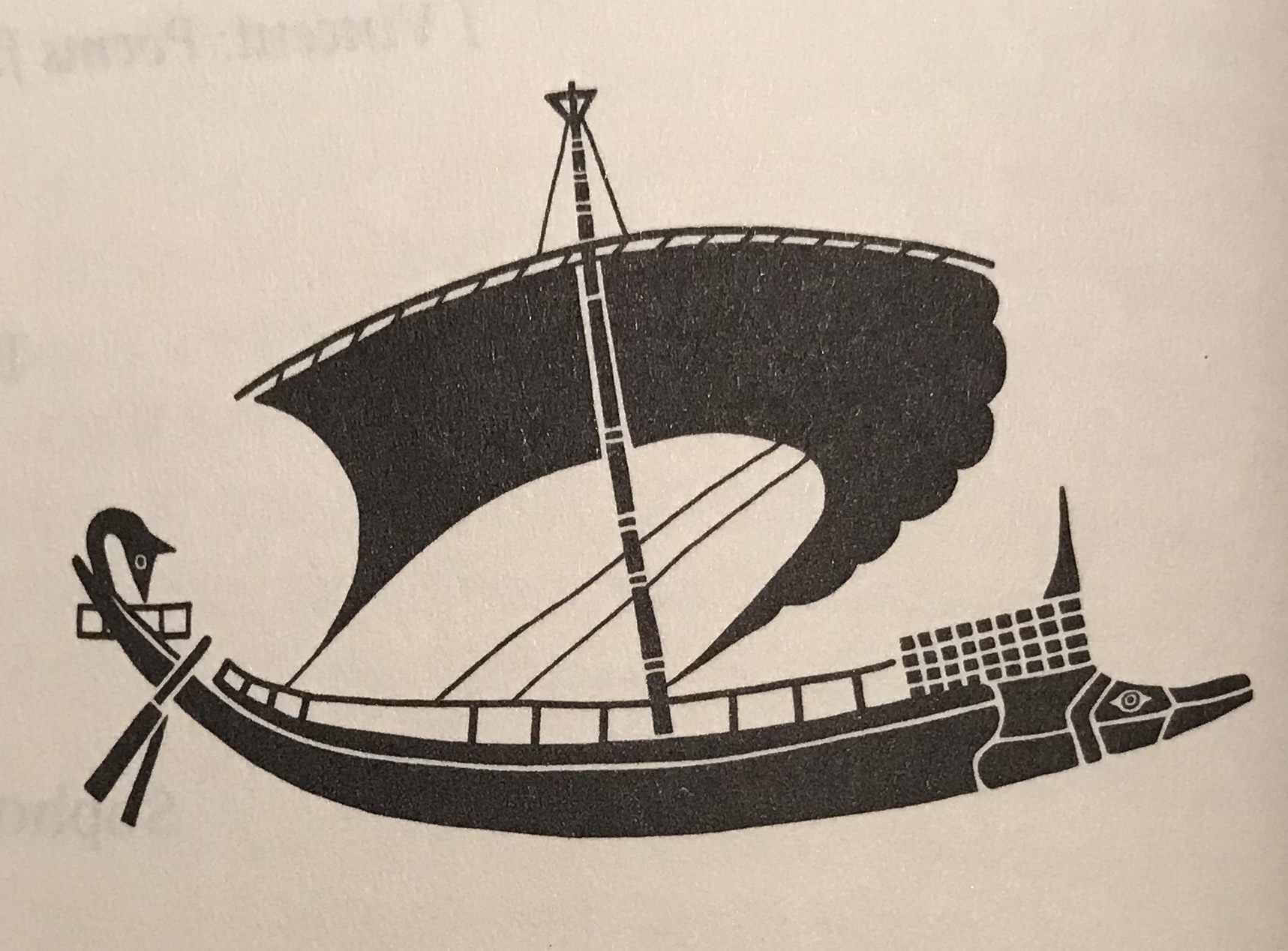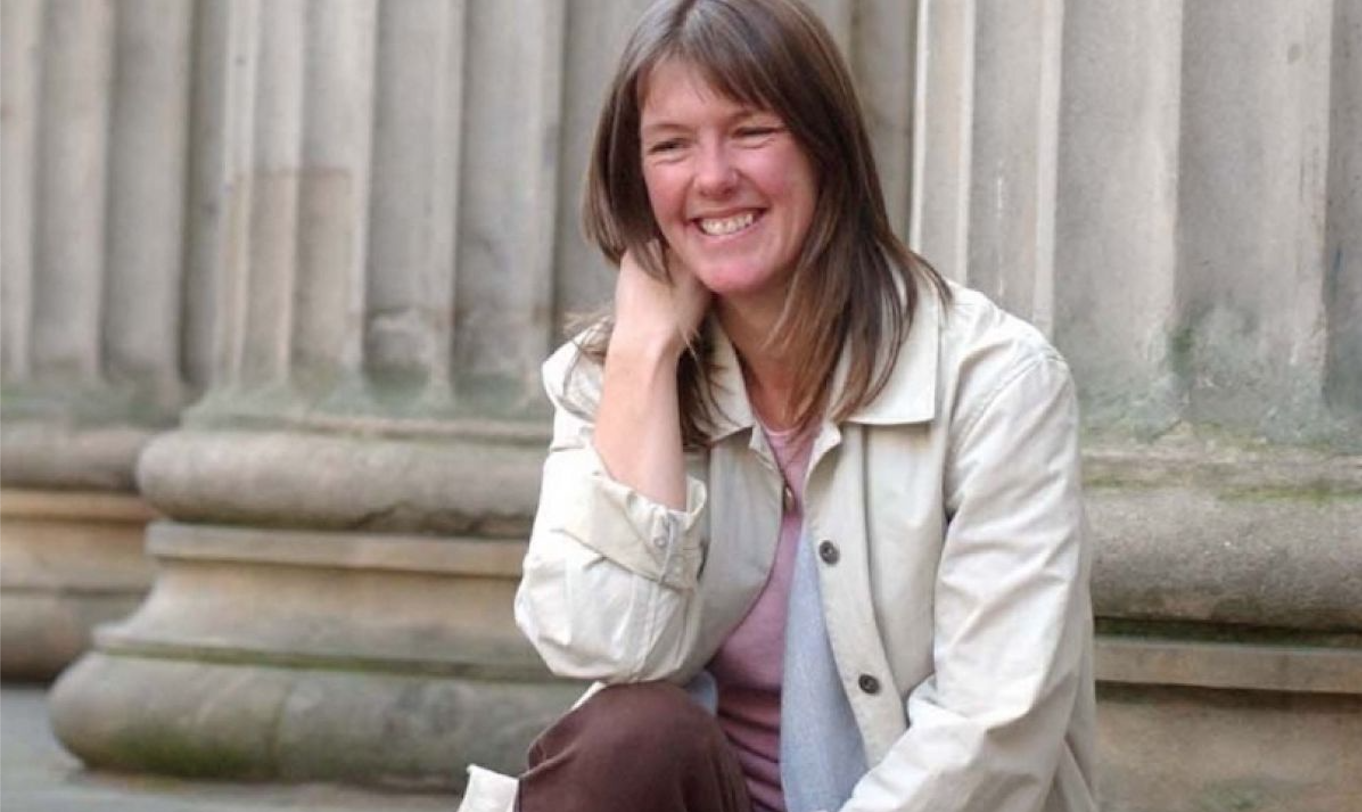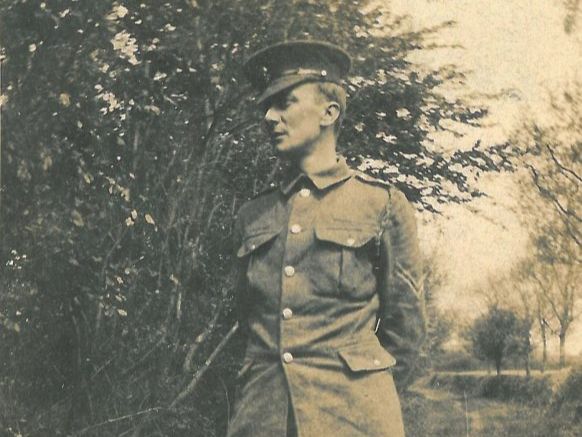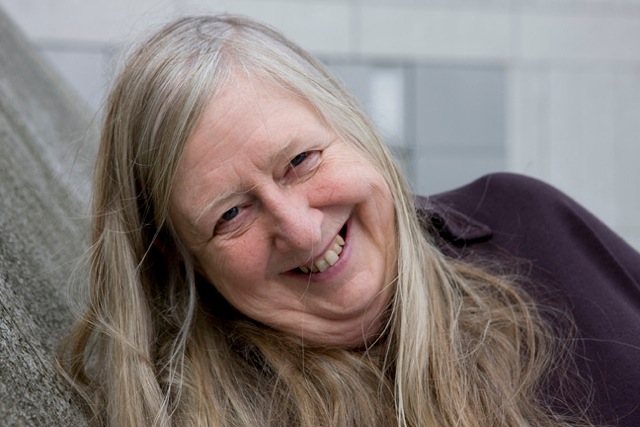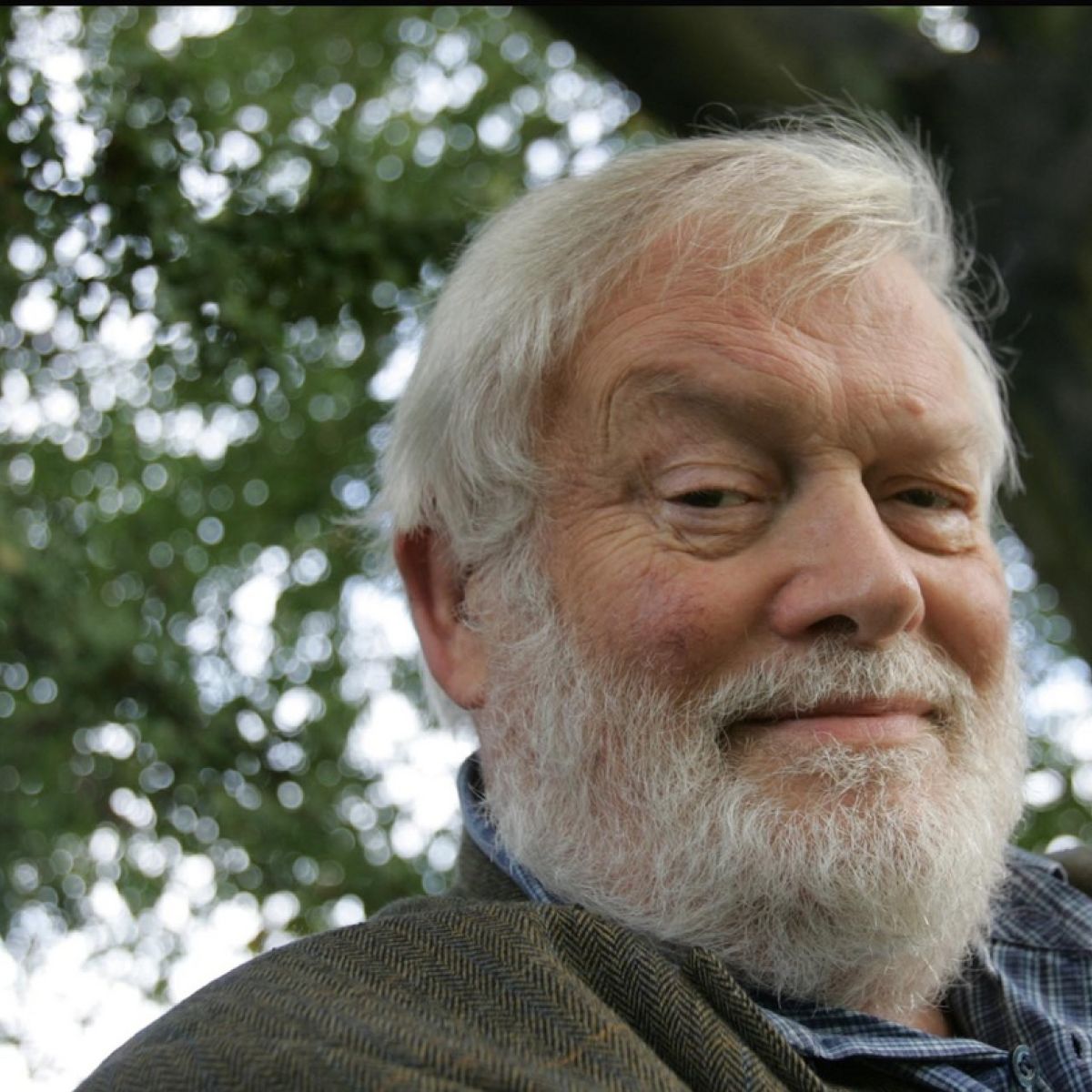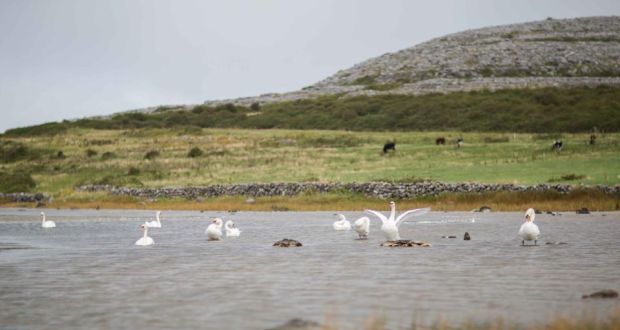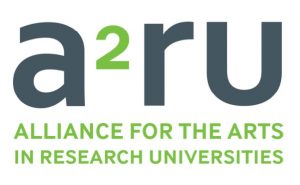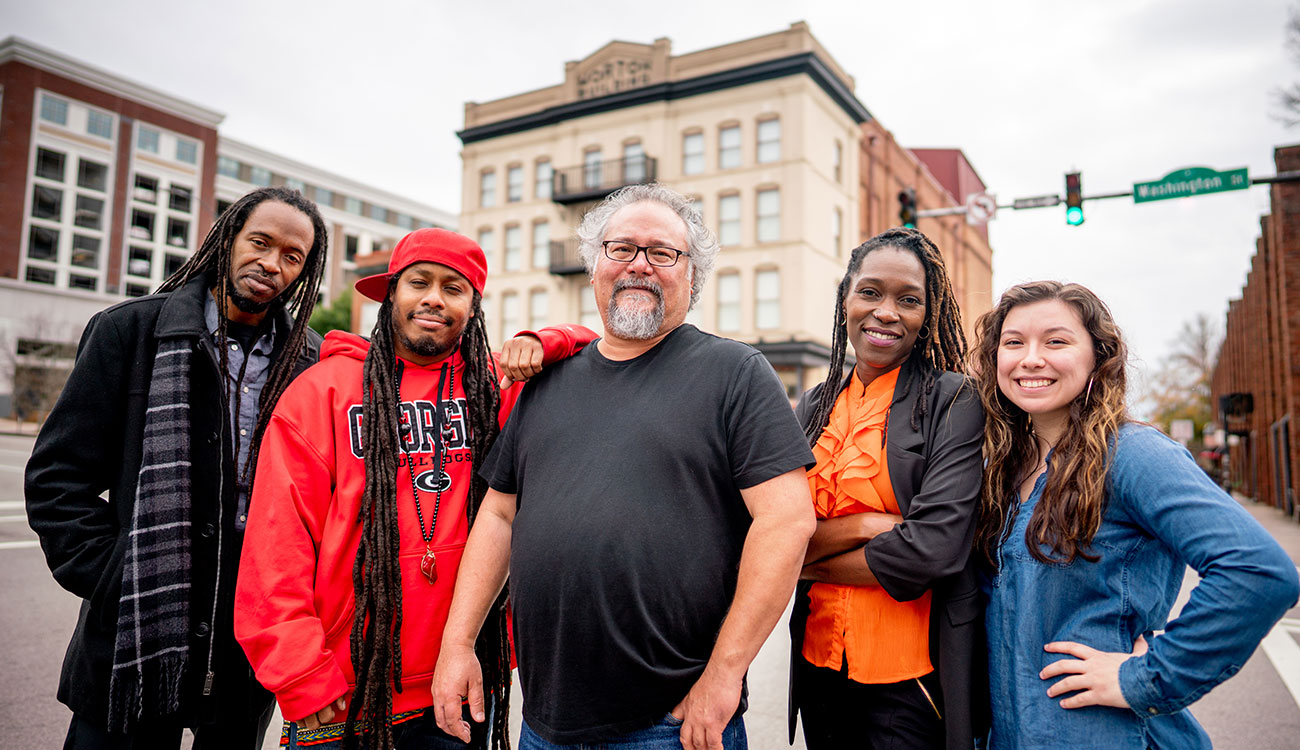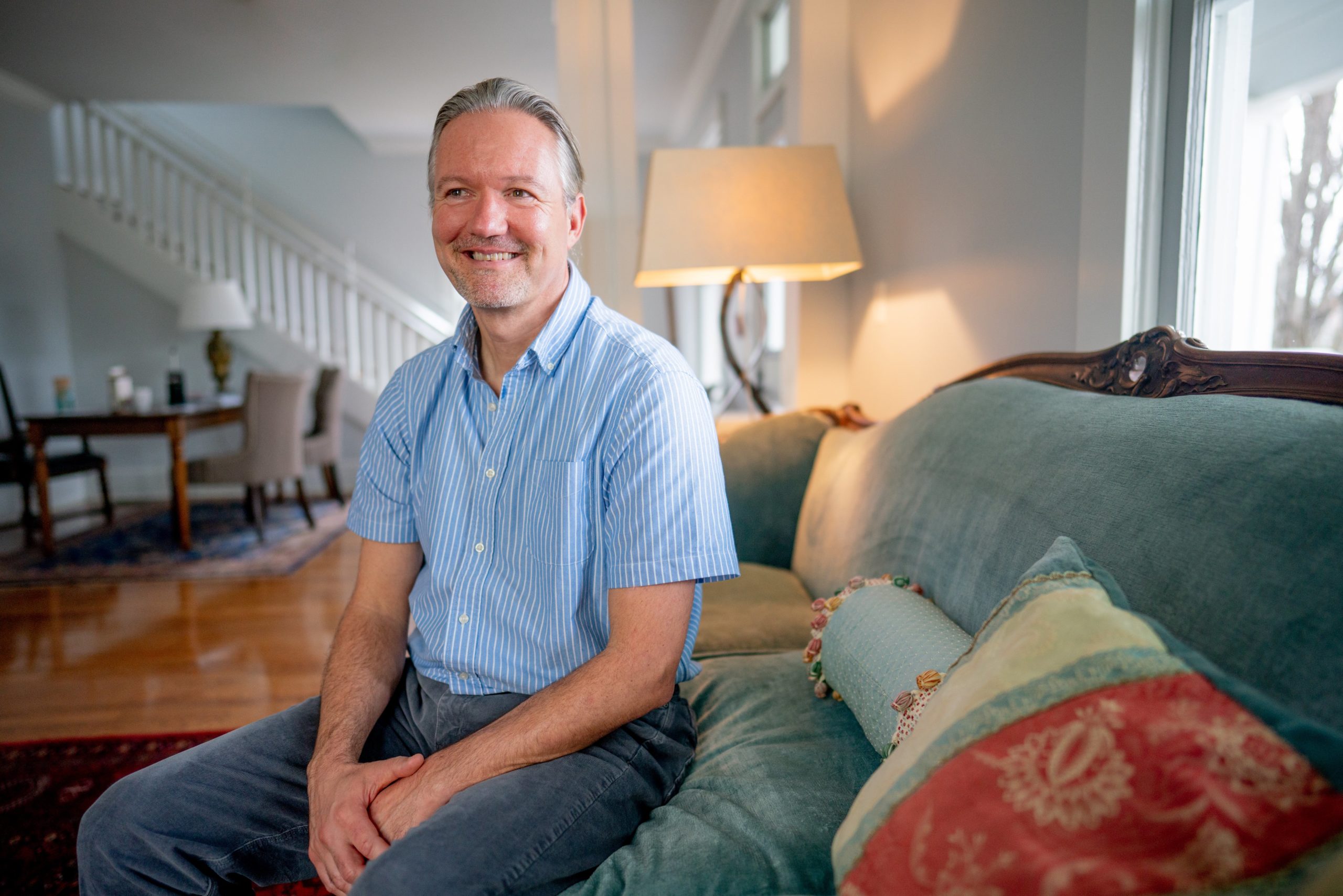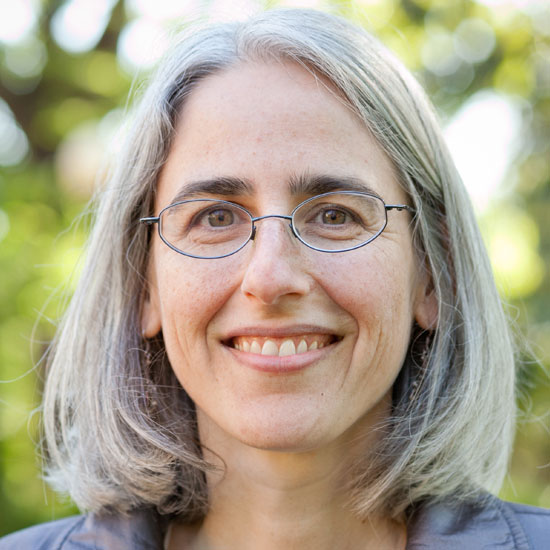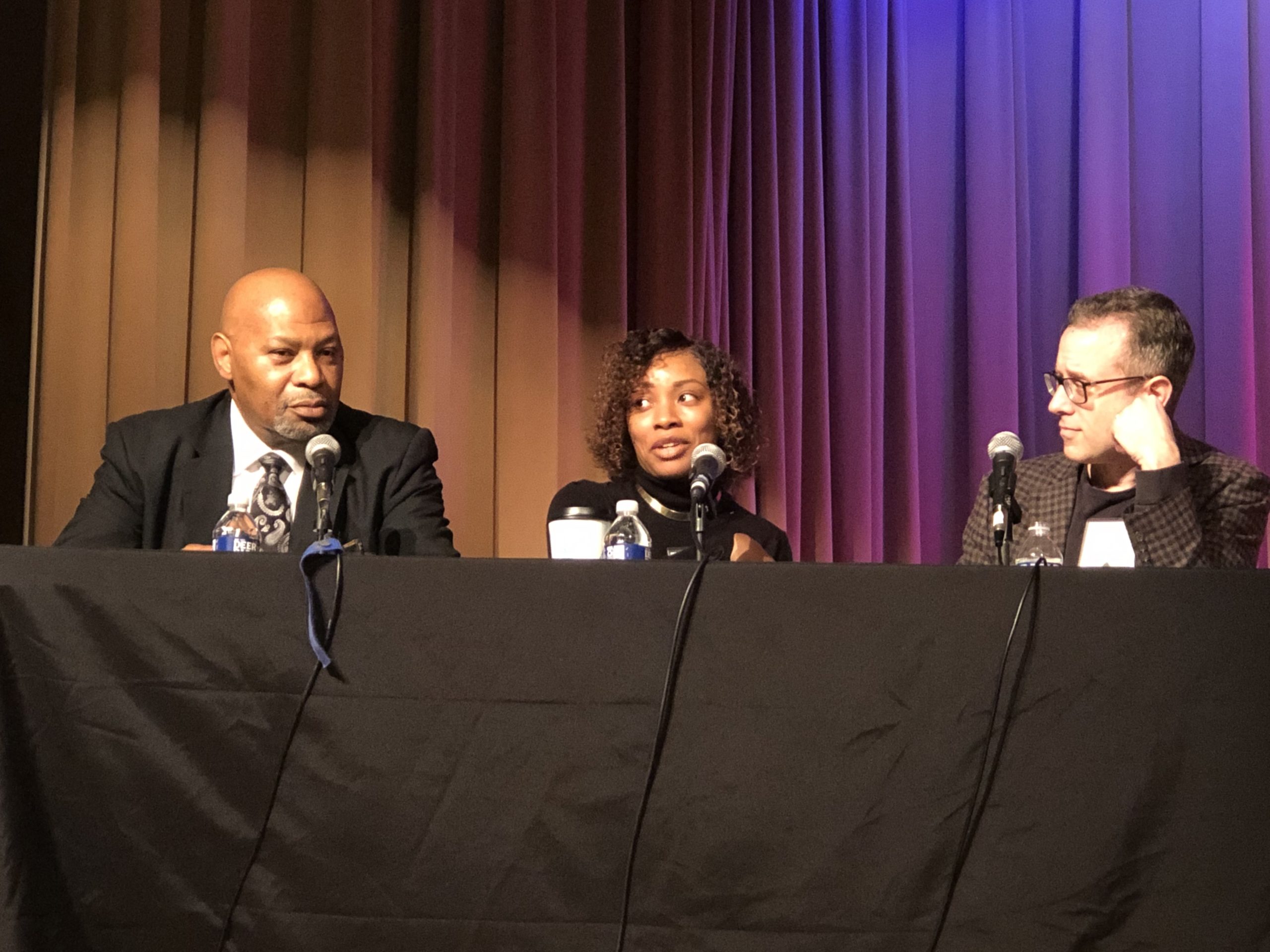Your weekly poem, May 12: “The Riverbank Field” by Seamus Heaney
A poem selected by our director Nicholas Allen, Baldwin Professor in Humanities
Dear friends,
“The Riverbank Field” is a companion to last week’s poem, both of which are versions that Seamus Heaney made from the Aeneid, and in companion to which you may enjoy this gloss. This is my favorite of the late poems as it describes a world I have come to know very well since my family moved from Belfast to Co. Derry when I was in university and have remained there since. By odd coincidence my father was manager of the bank in Magherafelt when it was bombed, an incident described in another of Heaney’s poems, “Two Lorries.” There was no harm there and we have a photograph at home of my father standing among the ruins, smiling in his hard hat. I met Seamus several times and he was always kind, welcoming and interested that we had been in Chapel Hill (which he told me once never to leave, having a special affection for the place from his visits there, including the lucky chance of being asked to give the commencement speech the very year he won the Nobel Prize). A noble man, he turned up to all kinds of literary readings in Dublin, sitting quietly at the back, and this for years after he became so celebrated.
“The Riverbank Field” draws the early summer countryside around Lough Neagh in eternal light. It was published in Human Chain, which was Heaney’s last collection and whose title poem is dedicated to Terence Brown, my old professor in Trinity. There is still something of the poet’s gentle fortitude in that verb “confound” and I may stretch your patience one more week before we go to Beowulf and share “Eelworks” with you next as it extends this watery province back into Heaney’s early life and life-long love. For now I wish you a safe and peaceful week, under the dome of this blue Georgia sky.
As always,
Nicholas
Seamus Heaney
“The Riverbank Field”
After Aeneid VI, 704-15 & 748-751
Ask me to translate what Loeb gives as
‘In a retired vale… a sequestered grove’
And I’ll confound the Lethe in Moyola
By coming through Back Park down from Grove Hill
Across Long Rigs on to the riverbank –
Which way, by happy chance, will take me past
The domos placidas, those ‘peaceful homes’
Of Upper Broagh. Moths then on evening water
It would have to be, not bees in sunlight,
Midge veils instead of lily beds; but stet
To all the rest: the willow leaves
Elysian-silvered, the grass so fully fledged
And unimprinted it can’t not conjure thoughts
Of passing spirit-troops, animae, quibus, altera fato
Corpora debentur, ‘spirits’, that is,
‘To whom second bodies are owned by fate.’
And now to continue, as enjoined to often,
‘In my own words’:
‘All these presences
Once they have rolled time’s wheel a thousand years
Are summoned here to drink the river water
So that memories of this underworld are shed
And soul is longing to dwell in flesh and blood
Under the dome of the sky.’

